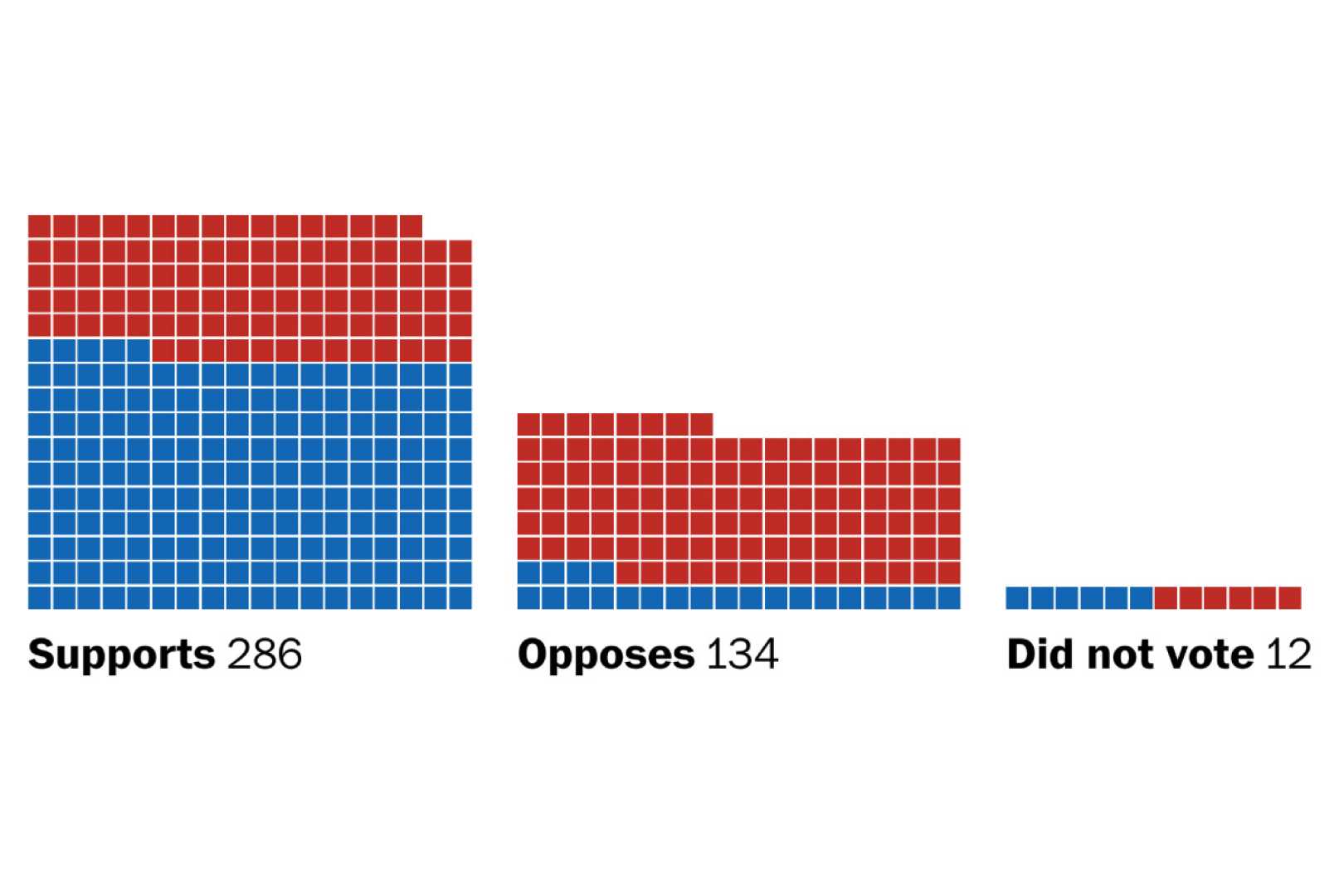Politics
House GOP Budget Bill Faces Critical Vote Amid Internal Divisions

WASHINGTON, D.C. — A crucial House GOP budget bill has navigated its final committee hurdle, setting the stage for a chamber-wide vote that could take place as early as Tuesday evening.
Passed by the House Rules Committee on a party-line vote, this legislation blends multiple budget proposals aimed at boosting spending in key areas such as border security, judiciary, and defense by approximately $300 billion. However, it also seeks to implement spending cuts between $1.5 trillion and $2 trillion across other federal programs.
House Speaker Mike Johnson, R-La., emphasized the urgency of the vote, stating, “We’re on track. We got the resolution through rules, and we’re expecting to vote tomorrow evening.” His comments came after conversations with potential holdouts who expressed concerns regarding the proposed cuts and their implications for vital federal programs.
Despite Johnson’s confidence, dissent within the party could jeopardize the bill’s passage. Rep. Victoria Spartz, R-Ind., announced her opposition over the weekend, while conservatives like Reps. Tim Burchett, R-Tenn., and Thomas Massie, R-Ky., have also indicated they may not support the resolution. Their reservations stem from apprehensions that spending cuts could negatively impact constituents reliant on federal benefits.
Amidst the unease, Johnson’s discourse with dissenting Republican members underscores the significance of securing unanimous support. “It was a very productive conversation,” Johnson noted, as he sought to alleviate concerns raised by members such as Rep. Nicole Malliotakis, R-N.Y. Malliotakis had criticized the proposed cuts, asserting that they would be untenable without affecting beneficiaries. However, following her meeting with GOP leaders, she expressed newfound optimism: “I’d say now I’ve shifted from undecided to lean yes.”
The budget bill also proposes to extend the provisions of the 2017 Tax Cuts and Jobs Act, which are set to expire at the end of the year. Although supported by many within the party, this provision is not without contention. An amendment negotiated by House Budget Committee Chairman Jodey Arrington, R-Texas, could impose significant constraints on lawmakers, requiring them to implement $2 trillion in spending cuts or face reductions to the tax cuts.
This potential mandate has raised alarms among members of the House Ways & Means Committee, prompting further discussions about the practicality of the proposed cuts. Amid this backdrop, Johnson’s commitment to advancing President Donald Trump‘s agenda remains intact as GOP lawmakers work to pass this extensive legislative package through a budget reconciliation process, which allows for a measure to be passed with a simple majority rather than the usual two-thirds requirement.
Notably, the Senate has already considered a separate plan that does not encompass Trump’s tax priorities, leaving the House’s efforts as a de facto backup if the House cannot reach agreement swiftly. With tensions high and internal divisions evident, the coming days will be pivotal in determining the fate of the GOP’s budget ambitions.












